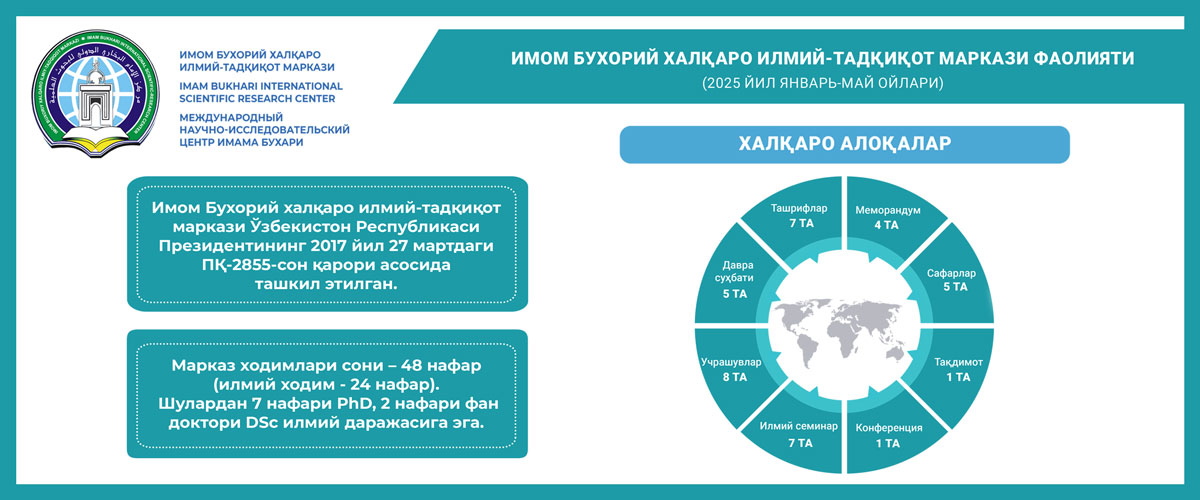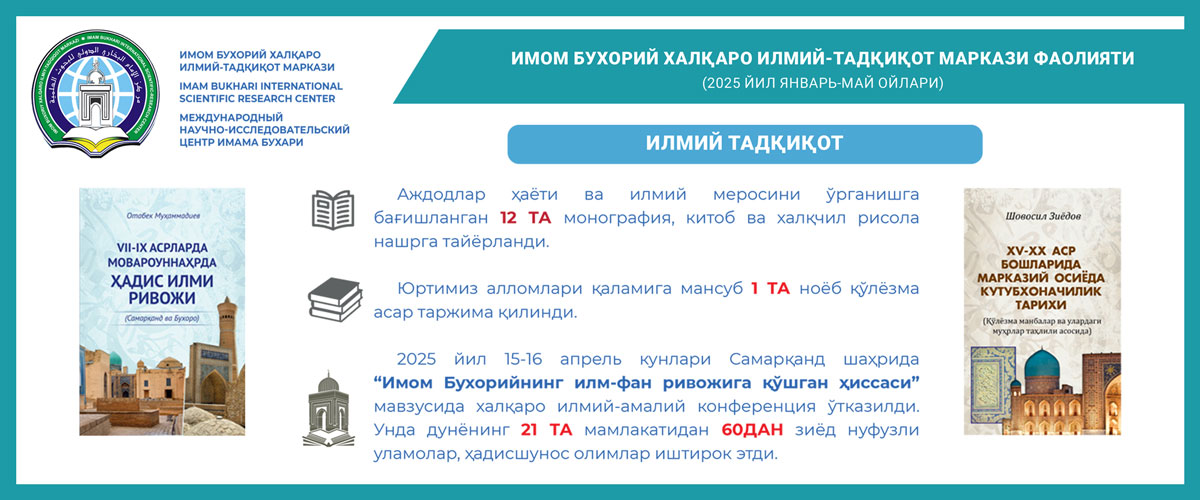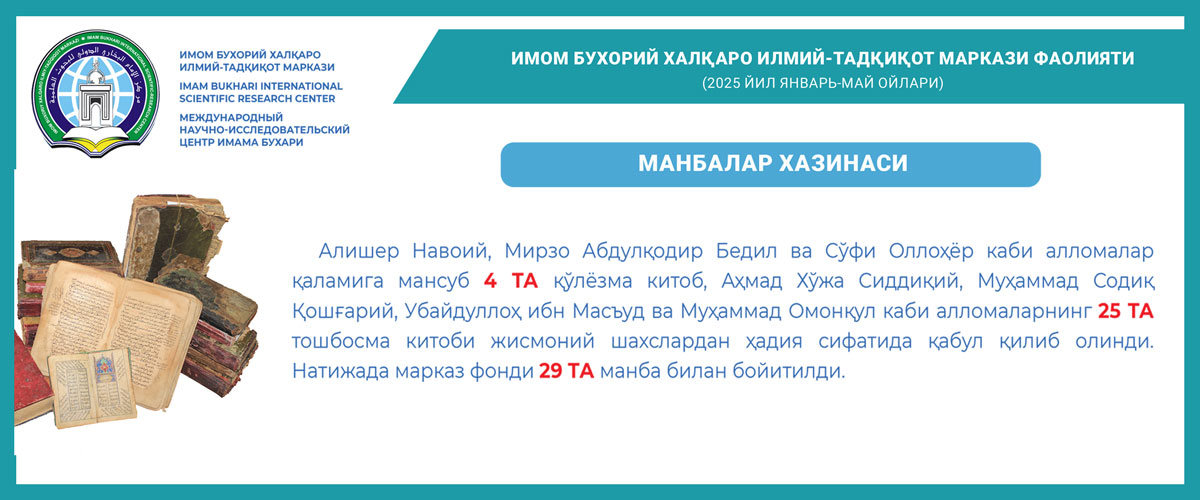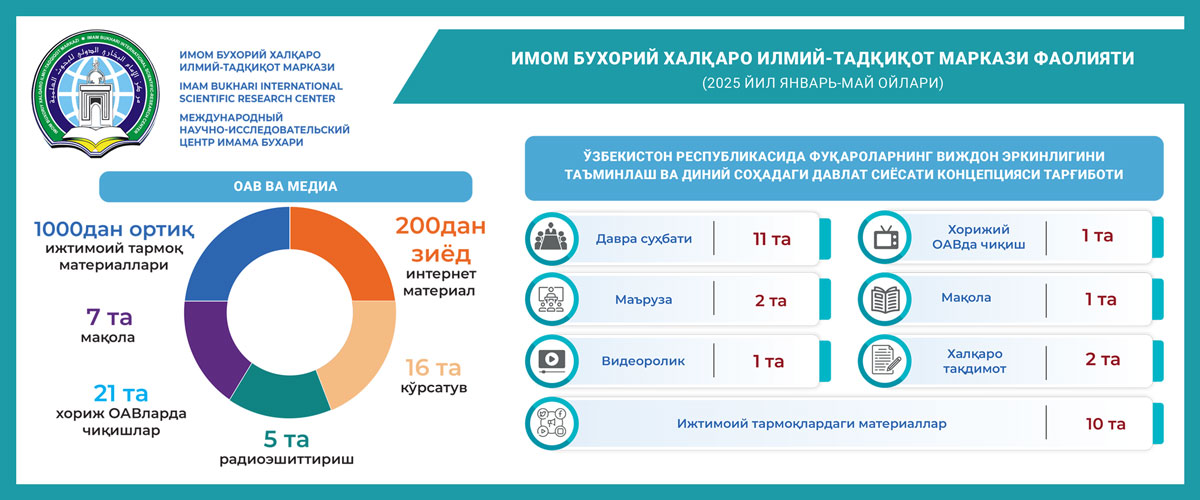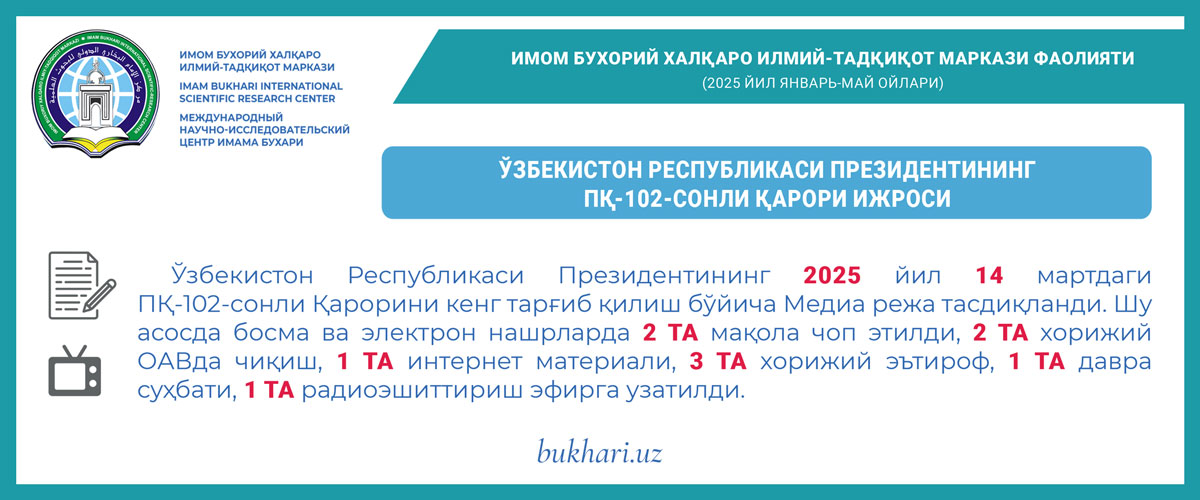Az-Zamakhshari’s another precious book is “Atvaqu-z-zahab fi-1-mavaiz va-l-khutab” (A Golden Collection of Lectures and Advice). It contains useful stories and advisable instructions that could be useful in the life of a Muslim. In 1835, a German orientalist Fon Homer translated the book into the German language and published it with its Arabic text. After some fifty years, i.e. in 1886, it was translated into French and published in Paris. In 1873, it was translated into an Ottoman Turkish language and published in Istanbul.
The author’s next book is “Rabiy’ al-abrar va nusus al-akhyar” (The Spring of Goodwill and Expression of Good Deeds). It contains the best selected articles and stories that deal with history, literature and other branches of the humanitarian sciences. A copy of this precious manuscript containing 97 chapters is preserved in the scientific library of the Institute of Oriental Studies named after Abu Rayhan Beruni of the Academy of Sciences of the Republic of Uzbekistan in Tashkent. Other copies of the book are preserved in the libraries of Leiden and Berlin.
The owner of the encyclopaedic knowledge az-Zamakhshari also created a valuable work in the field of geography titled as “Kitab al-jibal va-l-amkina va-l-miyah” (A Book about Mountains, Places and Water). He wrote this book during his stay in Mecca based on the information he had that he had received from his close friend, the ruler of Mecca Emir Ibn Vahhas and from his personal observations.
This precious book containing valuable and important information about the geographic situation of the Arabian Peninsula was first published in Europe in 1856 in Leiden by an orientalist Salver de Grave with its translation in Latin. The information provided in this book was widely used by a well-known Arabian scholar Yaqut al-Hamavi in his book “Mu’jam al-buldan” (An Encyclopaedia of Countries).
The next original book that belongs to the pencil of az-Zamakhshari is his book “Al-faiq fi gharib al-Hadith” (An Interesting Book about Poor Hadiths). It was devoted to the Hadiths of Prophet Muhammad (saas). A famous historian Ibn Hajar al-Asqalani wrote the following lines about the characteristic features of this book: “Az-Zamakhshari’s book “Al-faiq fi gharib al-Hadith” is a small but meaningful unit, and it differs from other analogues by the correctness and perfectness of Hadiths it contains”. This book was also republished several times in Haydarabad, Baghdad and Cairo.
A widely known book in the Islamic world that belonged to the pencil of az-Zamakhshari is his unique book “Al-Kashshaf”. It is a kind of tafsir devoted to the Holy Quran. This tafsir was written for three years (1132-1134) by az-Zamakhshari during his stay in Mecca. Before writing this tafsir, az-Zamakhshari had studied and examined all the existing tafsirs devoted to the Holy Quran and used them fruitfully in the process of writing his own tafsir. Though this work was written by the author from the point of view of the Mu’tazilah trend of Islam, it has its own place and importance among the books devoted to the Holy Quran. Unlike the other tafsirs devoted to the Holy Quran, az-Zamakhshari’s “Al-Kashshaf” contains rare and important information dealing with the philological peculiarities of the Qur’an. The importance of this book may also be explained by a great number of commentaries on this book and by the fact that the copies of the manuscript of this book is preserved in many libraries of the world.
Relying on the facts described above, we may conclude our story about Mahmud az-Zamakhshari with the opinion that our greatest ancestor and genius born in ancient Khoresm left a huge amount of scientific and spiritual heritage. The scholar spent his whole life in search of knowledge and education for the sake of developing most of the branches of the science and education. Additionally, he made a valuable contribution to the development of his disciples in Khoresm and in most of the cities of the East. He also established very close and effective relations with the leading specialists of the world in different branches of science and education and shared his scientific and educational experience with them.
Az-Zamakhshari’s deep knowledge and great potential in the field of science and education as well as his worthy contribution to the development of science and education brought him incomparable fame and reputation. The scholar was honoured with the most estimated and appreciated titles as “Ustaz ad-dunya” (The Teacher of the Whole World), “Ustaz al-arab va-l-ajam” (The Teacher of Arabs and Non-Arabs), “Jarullah” (Allah’s Neighbour) and “Fakhru Khoresm” (The Pride of Khoresm). These titles have never been given to anyone in the world. In the circle of scientists, scholars and other well-known and estimated learned people, he was a leading figure and in the debates and discussions of controversial problems, his opinions and ideas were taken into consideration. Perhaps relying on these incomparable scientific potential and rare abilities, he might have written about himself in one of his works: “Inniy fi Khwarizm Ka’bat al-adab” (I am really a Ka’ba for the learned people in Khoresm).
As has been mentioned above, the rich and fruitful scientific, spiritual and literary legacy of az-Zamakhshari has always been appreciated and investigated under the scientific principles in the East and in the West and his works have been translated into several foreign languages of the Europe. Thus, we may state with great pride and satisfaction that a genius from Khoresm belongs not only to the peoples of Uzbekistan or Central Asian countries but also to the people of the whole world. His invaluable and incomparable legacy is the most precious pearl that will serve to the spiritual perfection of man throughout the world.
It is necessary to mention that during the years of independence gained by our country much has been done in the field of studying and investigating the life and the scientific heritage of the scholar az-Zamakhshari. The highest importance in that earned the Decree issued by the President Islam Karimov on the celebration of the 920th anniversary of Mahmud az-Zamakhshari in 1995. At the same time, it is necessary to note that studying and investigating the works by az-Zamakhshari, translating his works into Uzbek and making them property of the nation are one of the sacred duties of experts and specialists in this field.
 Imom Buxoriy xalqaro ilmiy-tadqiqot markazi bukhari.uz
Imom Buxoriy xalqaro ilmiy-tadqiqot markazi bukhari.uz
